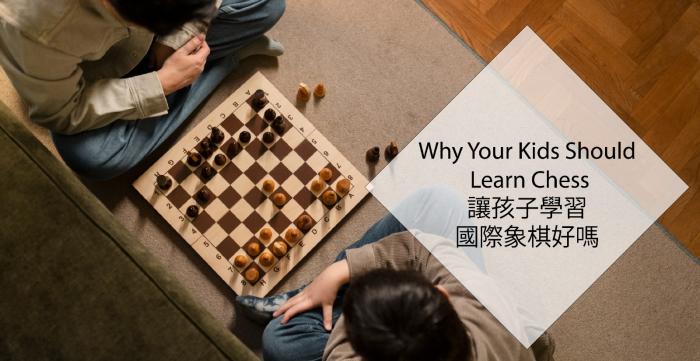
Why Your Kids Should Learn Chess
An unprecedentedly hit Netflix movie about a chess prodigy piqued my interest in this game. So when my son told me recently that he wanted to learn to play chess, I immediately enrolled him in the regular and Christmas courses. To convince myself that it was a wise move, I researched extensively and discovered that playing chess can significantly benefit children.
1. Train the brain
Playing chess develops children's calculation skills and science logic by exposing them to complex calculations at an earlier age. While logical thinking skills are developed, and memory is enhanced, they learn to predict outcomes through reasoning. According to a study published in the Dutch International Journal of Cognitive Brain Research, playing chess promotes the development of the right side of the brain, which is y used less frequently. Another German study has shown that active chess engages the left and right brain simultaneously. In short, playing chess activates and exercises the entire brain, with its enhanced cognitive and mathematic functions, the brain becomes faster and stronger.
2. Improve concentration
The chess game is usually conducted in a quiet environment. During a game of chess, being highly concentrated, carefully observing the distribution of the opponent's pieces and planning their own strategies are the keys to winning at chess. It helps develop a habit of being focused on things, which is vital in academic studies and everyday life.
3. Cultivate good personalities
Playing chess is essential to developing a child's character and personality. Chess games' cultural connotations and etiquette help create children's manners and respect for others. Since the average chess game can last anywhere from 20 minutes to several hours, plus each move takes time to calculate, plan and execute, children will understand that patience is indeed a virtue that will lead to positive outcomes.
4. Improve judgment
In a game of chess, players have to think rationally and out of the box in order to increase their chances of winning. They often need to make a risk assessment and plan the whole game, such as sacrificing certain pieces to gain a more significant victory. They learn "give and take" and understand that to achieve final success, we have to make the right judgment and sometimes sacrifice is inevitable. This mindset is helpful for them to make rational decisions when children face challenges or dilemmas in their future life.
5. Enhance academic performance
According to the experimental results from international experts, it is unanimously agreed that children who learn chess have an obvious positive effect on their academic performance. Chess improves academic performance by improving the children's cognitive abilities, logical thinking, mathematical skills and reasoning. In addition, it brings out latent abilities that have not been reached by the traditional education approach.
6. Improve social life
Chess is a healthy and educational social activity. It is also a dynamic and exciting game where two strategic minds meet and create endless opportunities. As children mature, time spent away from home with peers is vital for their development. By interacting, competing, and learning with kids of similar ages and sharing the same interests, children will have lots of enjoyment and incomparable satisfaction, which parents cannot give. Nothing could be more fun than growing and spending time with like-minded peer, so friendships can be built naturally and quickly, and may last a lifetime.
There must be more benefits of chess than the above and I believe I have made the right decision for my kid. However, the skills of chess cannot be achieved overnight, and I must remind myself to keep my children from continuing halfway. It is never too late to learn to play chess, so why don't you enrol your child today and reap all the benefits associated with the game?








